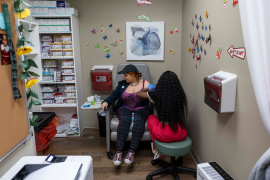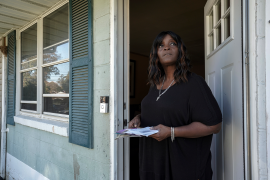New York City, July 26, 2005—Medicare, which turns forty this month, has been successful in ensuring access to medical care for beneficiaries, according to the overwhelming majority of respondents to the latest Commonwealth Fund Health Care Opinion Leaders survey. A majority also say Medicare has not been as successful in leveraging its substantial purchasing power to improve quality of care, and favor policy changes with the goal of improving quality in Medicare. Large majorities of respondents who participated in the online survey of U.S. health care experts favored policies to use Medicare's leverage to speed adoption of electronic medical records (EMRs) and health information technology (89%), and agreed that providers of high-quality and efficient care should be rewarded (87%). Majorities of respondents also favor policies such as allowing early buy-in for 50 to 64-year-olds (65%), allowing those under 65 to contribute to a special savings account to use in the future for medical costs not covered by Medicare (67%), and eliminating the two-year waiting period for disabled beneficiaries (67%). "Medicare has achieved its goal of ensuring stable coverage and access to care for millions of our most vulnerable elderly and disabled, and with higher patient satisfaction than with private coverage of non-elderly adults," said Commonwealth Fund President Karen Davis. "Medicare has the potential to be a major force in moving the U.S. towards a health system that provides high-quality, efficient, and patient-centered care to all Americans." Majorities of the 230 survey respondents said Medicare has successfully accomplished several goals:
- A wide majority (92%) said Medicare has been successful in providing stable, predictable coverage and guaranteed access to basic medical care for seniors and disabled beneficiaries (37% extremely successful; 32% very successful; 24% successful).
- Four of five (80%) said Medicare has been successful in providing support for medical education and training programs (19% extremely; 34% very successful; 27% successful).
- Over two-thirds (71%) said Medicare provides financial protection for those who are vulnerable due to low income and/or poor health (15% extremely, 32% very successful; 24% successful).
- Two-thirds (67%) think that Medicare has been successful in improving the health status of beneficiaries (12% extremely; 28% very successful; 27% successful).
- Nearly two-thirds (64%) said Medicare has been successful in helping spread new medical technology and treatment methods (13% extremely; 27% very successful; 24% successful)
- Three-fifths (61%) say Medicare has helped decrease racial disparities through improved access to care for minority beneficiaries (7% extremely; 26% very successful; 29% successful).
- Three-fifths (60%) say Medicare has helped ensure the financial stability of providers and their ability to serve the poor and uninsured (8% extremely; 26% very successful; 25% successful).
- Two of five (41%) say Medicare has been successful in providing independence to the frail elderly and disabled through home care (3% extremely; 13% very successful; 24% successful).
- One-fifth (21%) say Medicare has successfully used its purchasing leverage to improve quality of care (1% extremely; 4% very successful; 16% successful).
- Only twelve percent say Medicare is successful in encouraging healthier lifestyles and preventive care (0% extremely; 2% very successful; 10% successful).
- Large majorities agree that Medicare should use its leverage to accelerate adoption of EMRs and health information technology (89%), and to reward providers for performance on quality and efficiency (87%).
- Eighty-four percent say that beneficiaries should designate a primary care "medical home," and providers should be rewarded for coordinating care and ensuring that patients receive preventive care.
- Two-thirds say that higher-income Medicare beneficiaries should pay higher premiums (68%); and that taxes should be raised to ensure Medicare's long-term solvency (67%).
- Two-thirds say adults under age 65 should be allowed to contribute to a "Medicare Health Account" to be used for costs not covered by Medicare (67%).
- Two-thirds say Medicare should be able to offer its own comprehensive benefit package as an alternative to Medigap or Medicare Advantage (67%).
- Two-thirds say the two-year waiting period for coverage of the disabled should be eliminated (67%).
- About two-thirds say adults ages 50-65 should be allowed to buy into Medicare (65%).
- Less than half (47%) favor eliminating extra payments for private health plans.
- Just eighteen percent favor capping federal spending per Medicare beneficiary through premium support or other means.
A summary of the survey results is posted today on the Fund's site, along with a commentary by Davis outlining proposals for future directions for the program, "Medicare: Time for a New Preamble." She notes that "Medicare could do far more to promote 'supply side efficiency,'" adding that "Now is an opportune time to revisit some of the assumptions on which Medicare was predicated. In particular Medicare needs to move more aggressively to become a leader in promoting high quality, high efficiency care for Medicare beneficiaries and for all Americans."
Also posted are two commentaries on the future of Medicare as it turns forty. In "Medicare: Yesterday and Tomorrow," Joseph R. Antos of the American Enterprise Institute, notes that "Greater reforms are necessary if Medicare is to meet the demands of the baby boomers, who are poised to double the program's enrollment over the next few decades." He adds that "The problems of the U.S. health care system are larger than Medicare, but the program can play a pivotal role in addressing those problems." In "The Future of Medicare: Finishing What We Started," Bruce Vladeck of Ernst and Young LLP, and a former Medicare administrator, says that "The track record is incontrovertible: Medicare has proven that, as a nation, we are capable of getting medical care to a particularly vulnerable part of the population, and of reducing mortality, morbidity, and human suffering in the process....And we need to remind ourselves that the founders of Medicare thought they were just getting things started, and that there's a whole lot more work still to do."
The online survey of experts, representing a range of health care sectors and diverse perspectives, is the fourth in a bimonthly series conducted by Harris Interactive for the Commonwealth Fund, designed to highlight leaders' perspectives on the most important and timely health policy issues facing the nation. This survey focused on rating the success of Medicare as well as specific aspects of the program. Respondents were also asked whether they favor or oppose suggested program changes.
Methodology: The online survey was conducted by Harris Interactive® between June 9, 2005 and June 22, 2005. The survey was delivered via e-mail to a panel of 1289 opinion leaders in health policy and innovators in health care delivery and finance; 230 responded. The sample was developed jointly by The Commonwealth Fund and Harris Interactive by identifying experts across different health care industries and professional sectors with a range of perspectives, and then asking them to nominate others within and outside their own fields whom they would consider to be leaders and innovators in the health care industry. The data were not weighted and are representative of the opinion leaders and innovators surveyed. The overall results have a sampling error of plus or minus 6.5 percentage points at the 95 percent confidence level. This online sample is not a probability sample.


